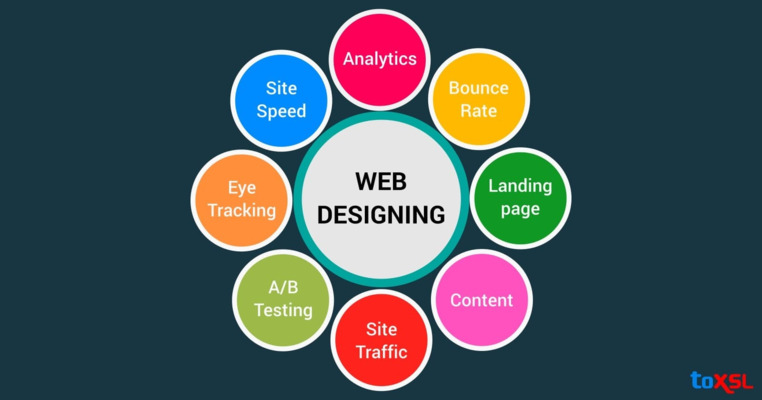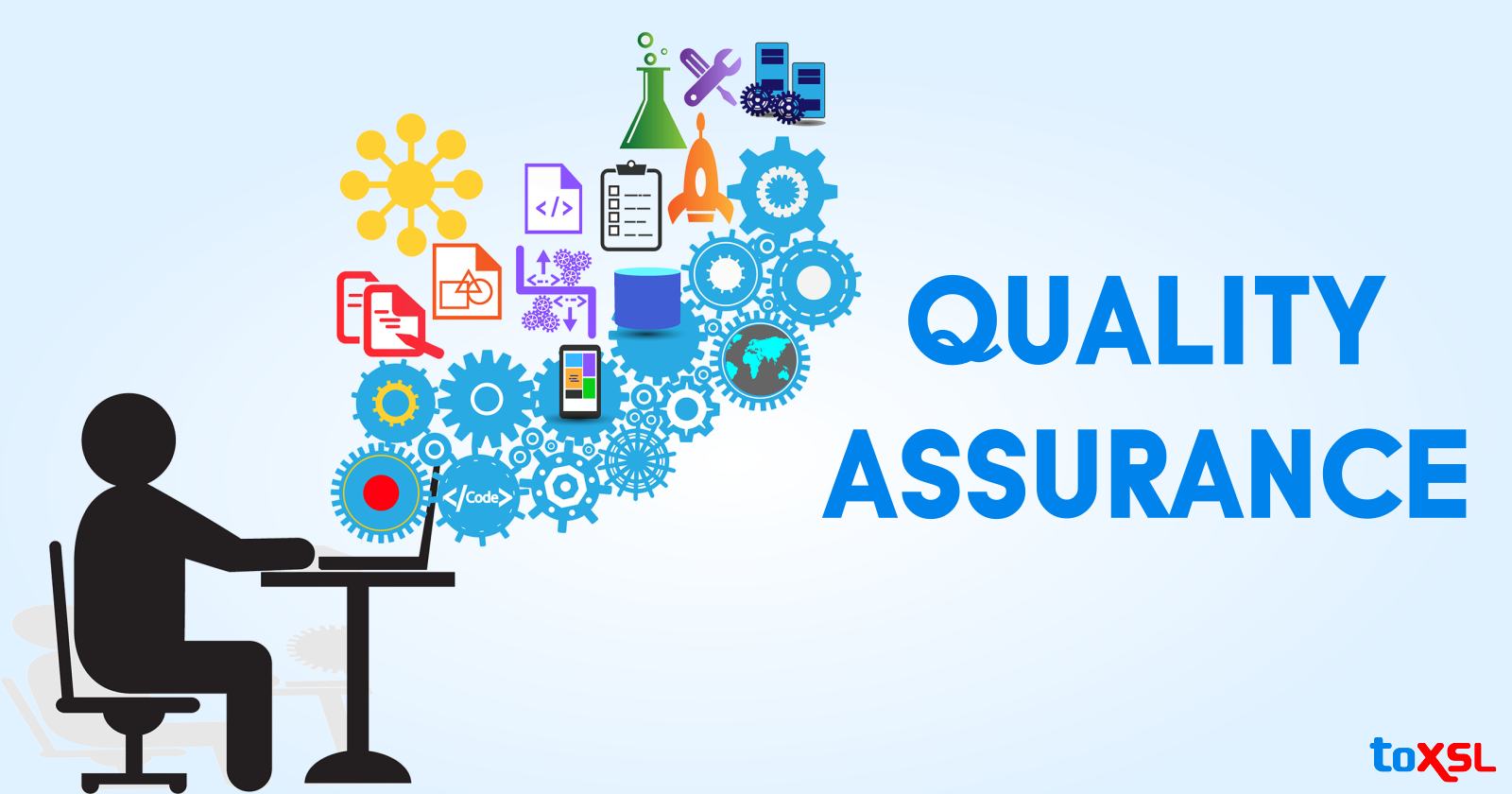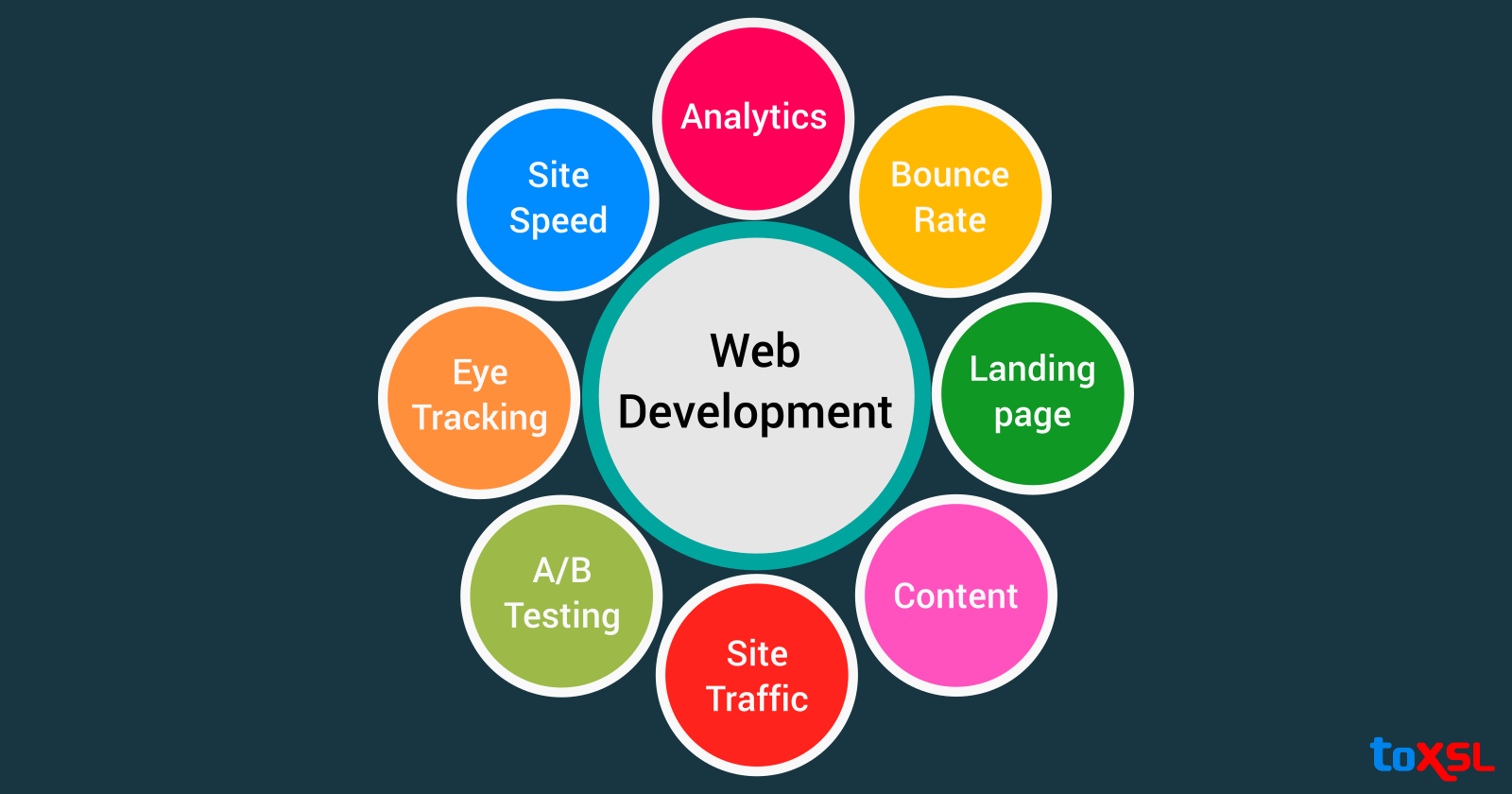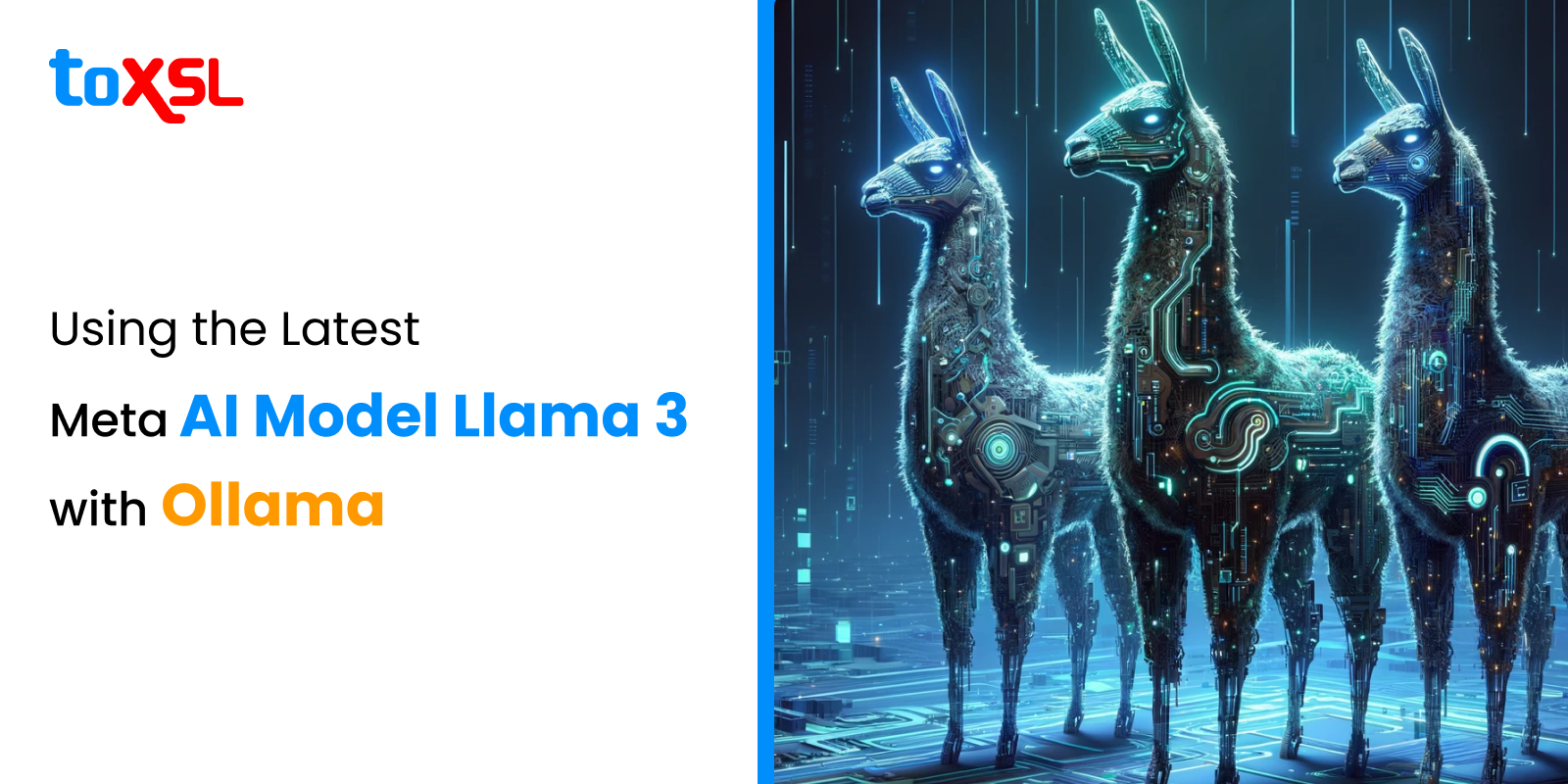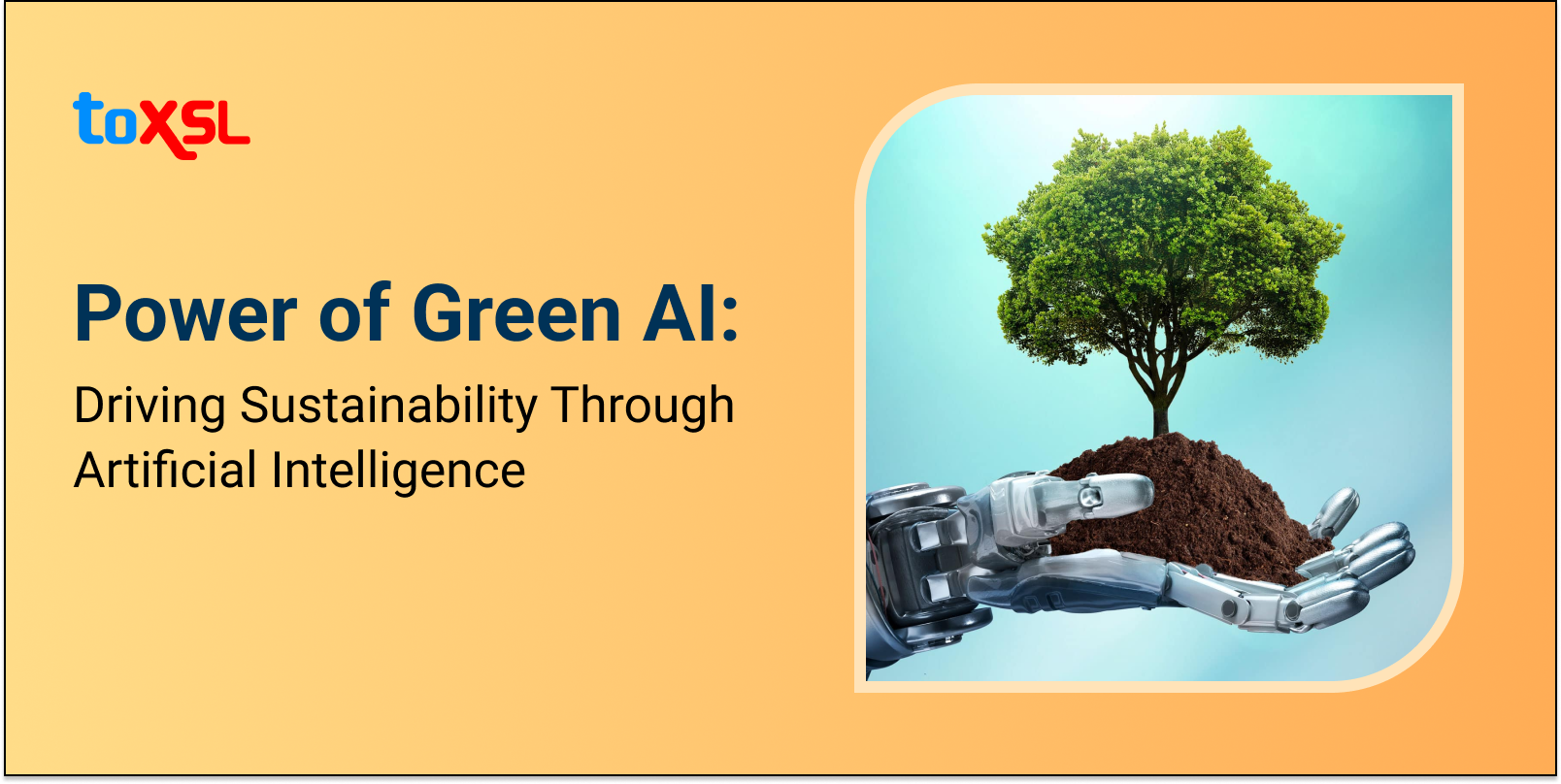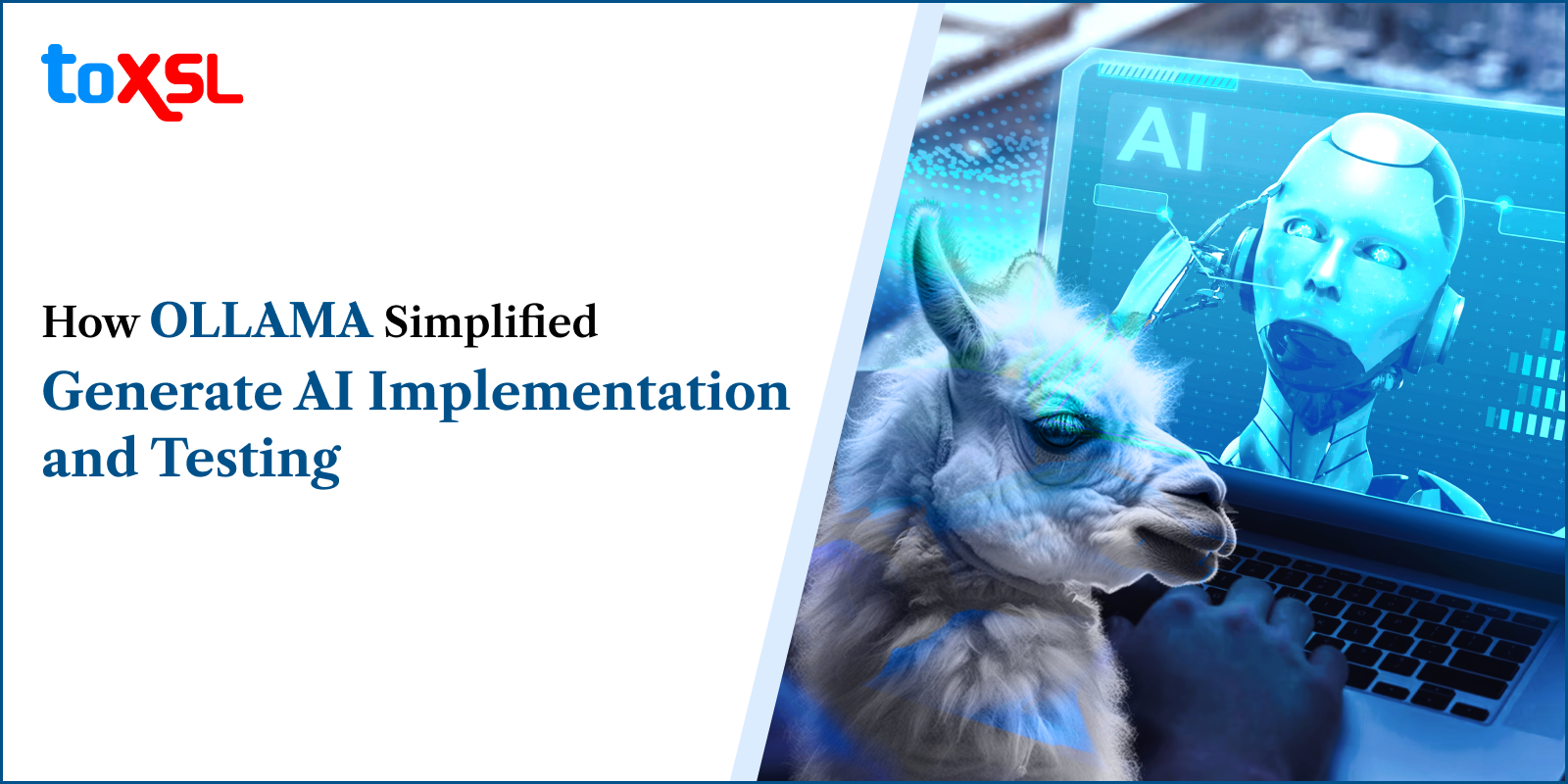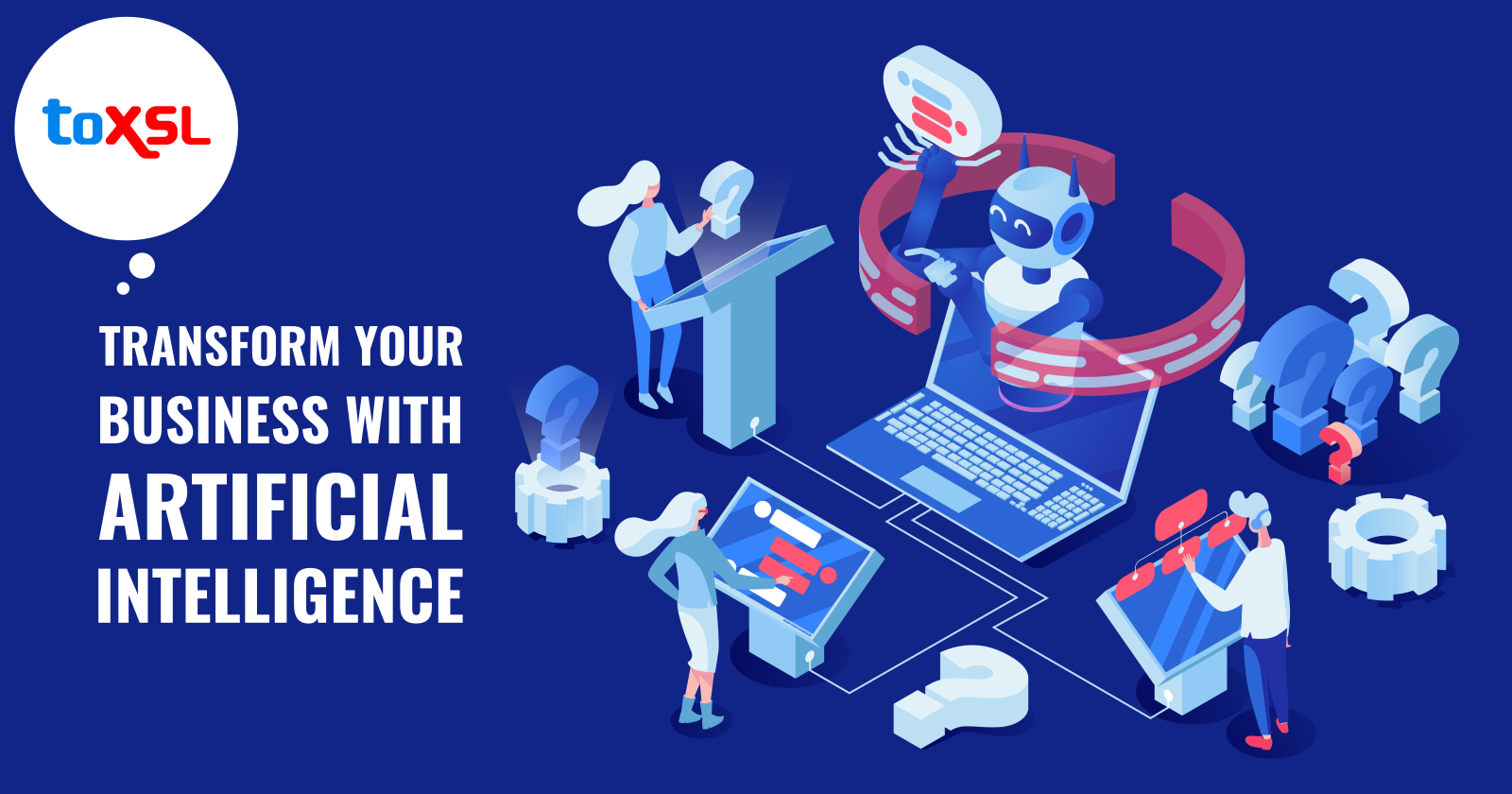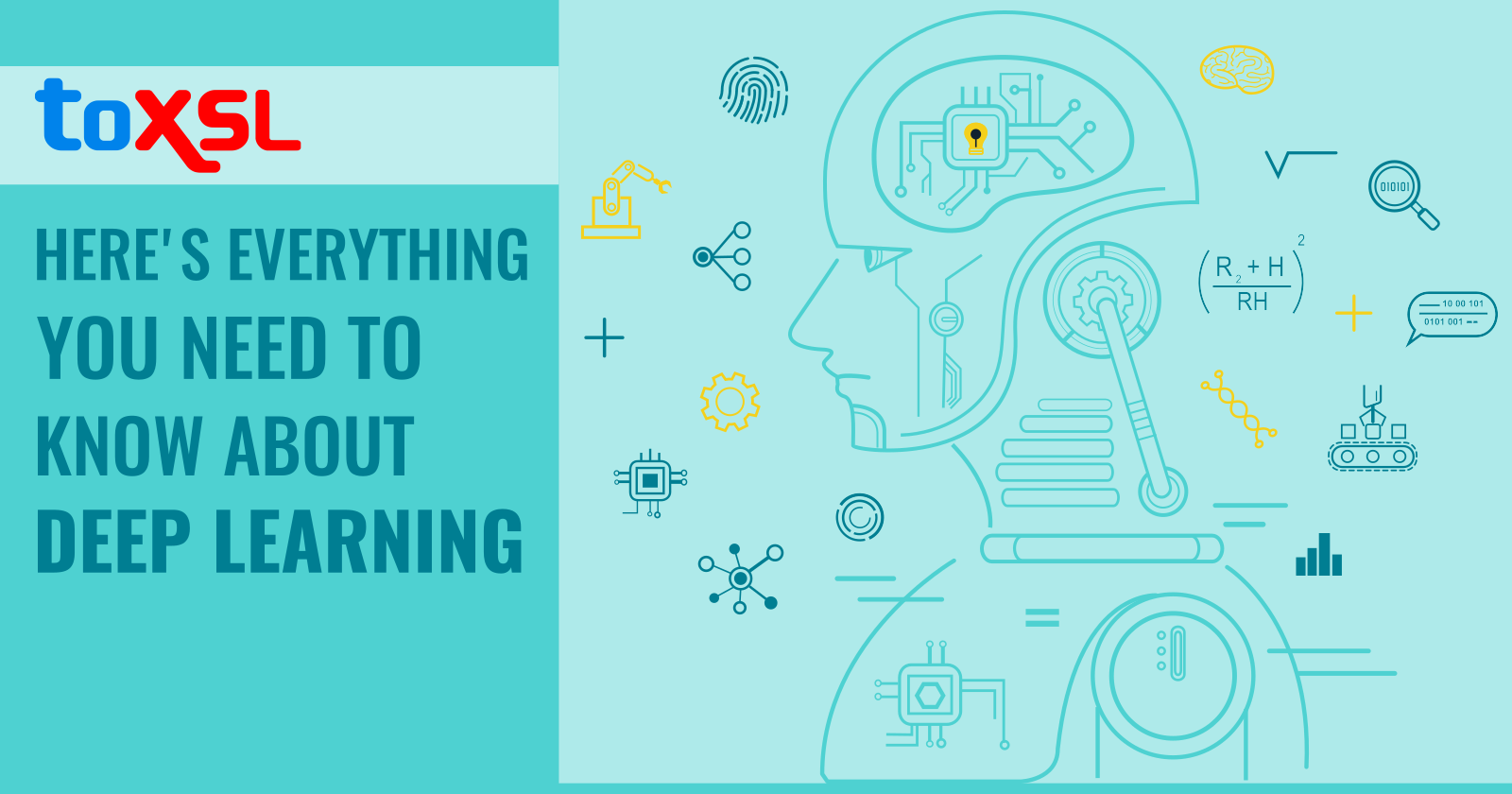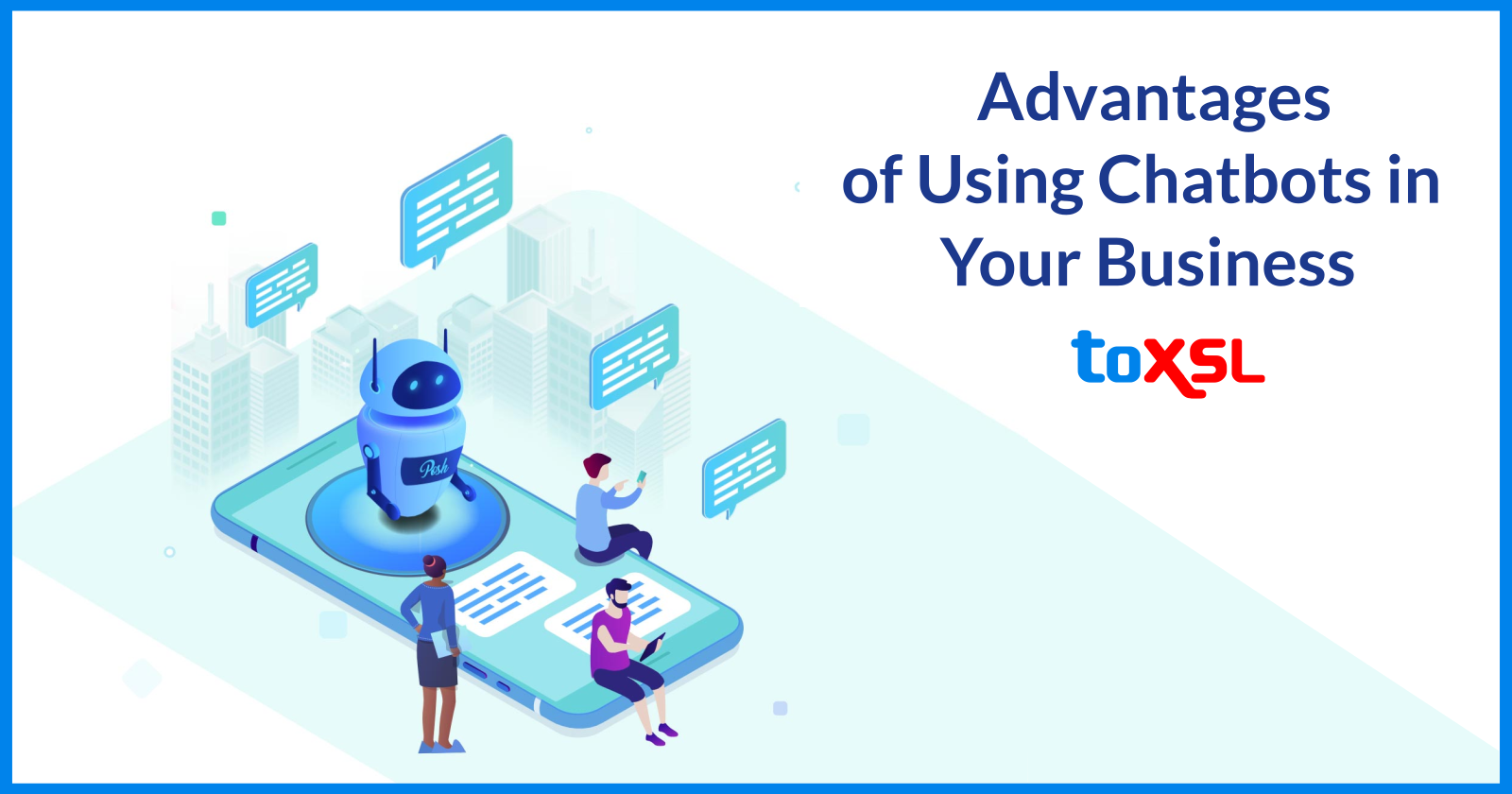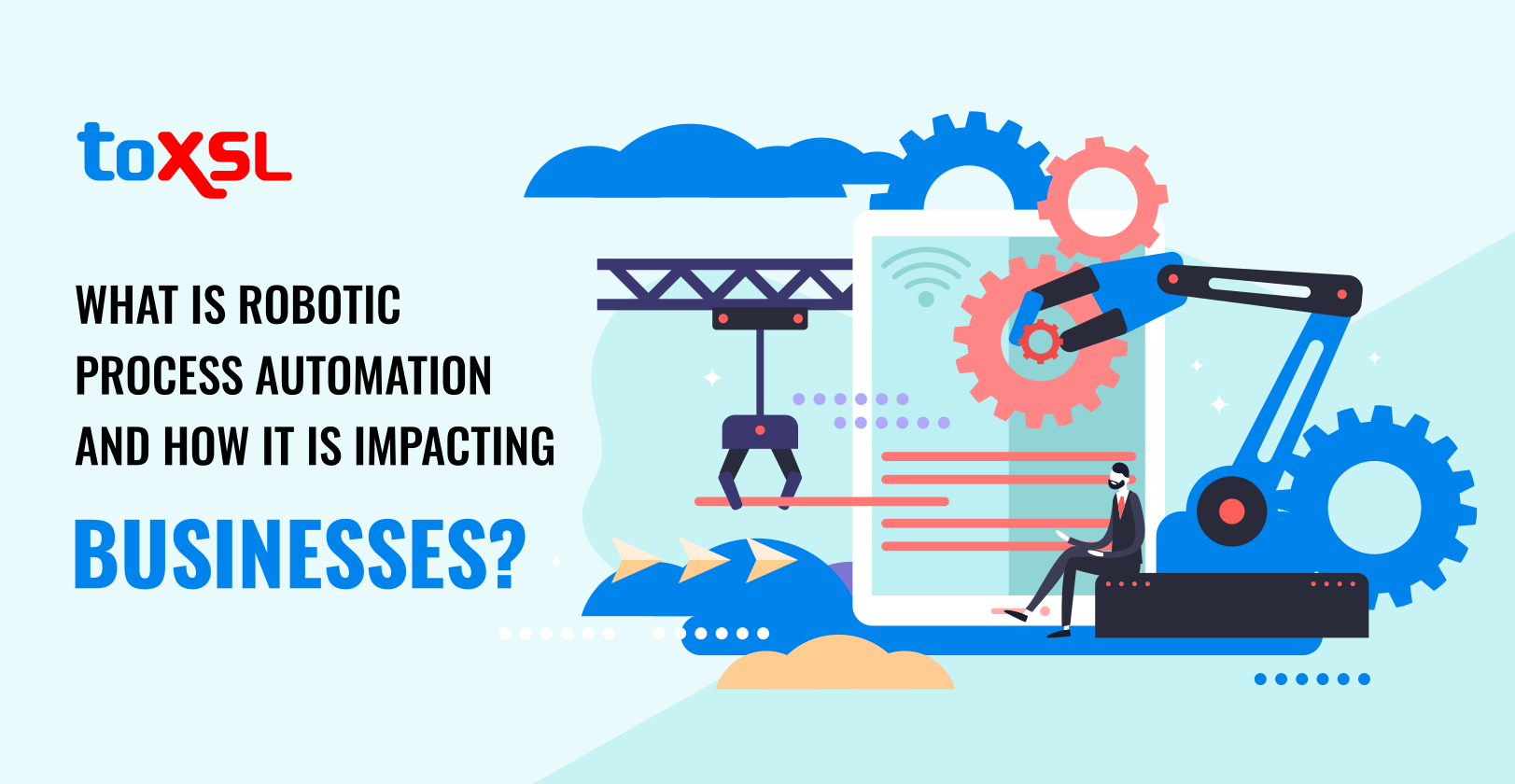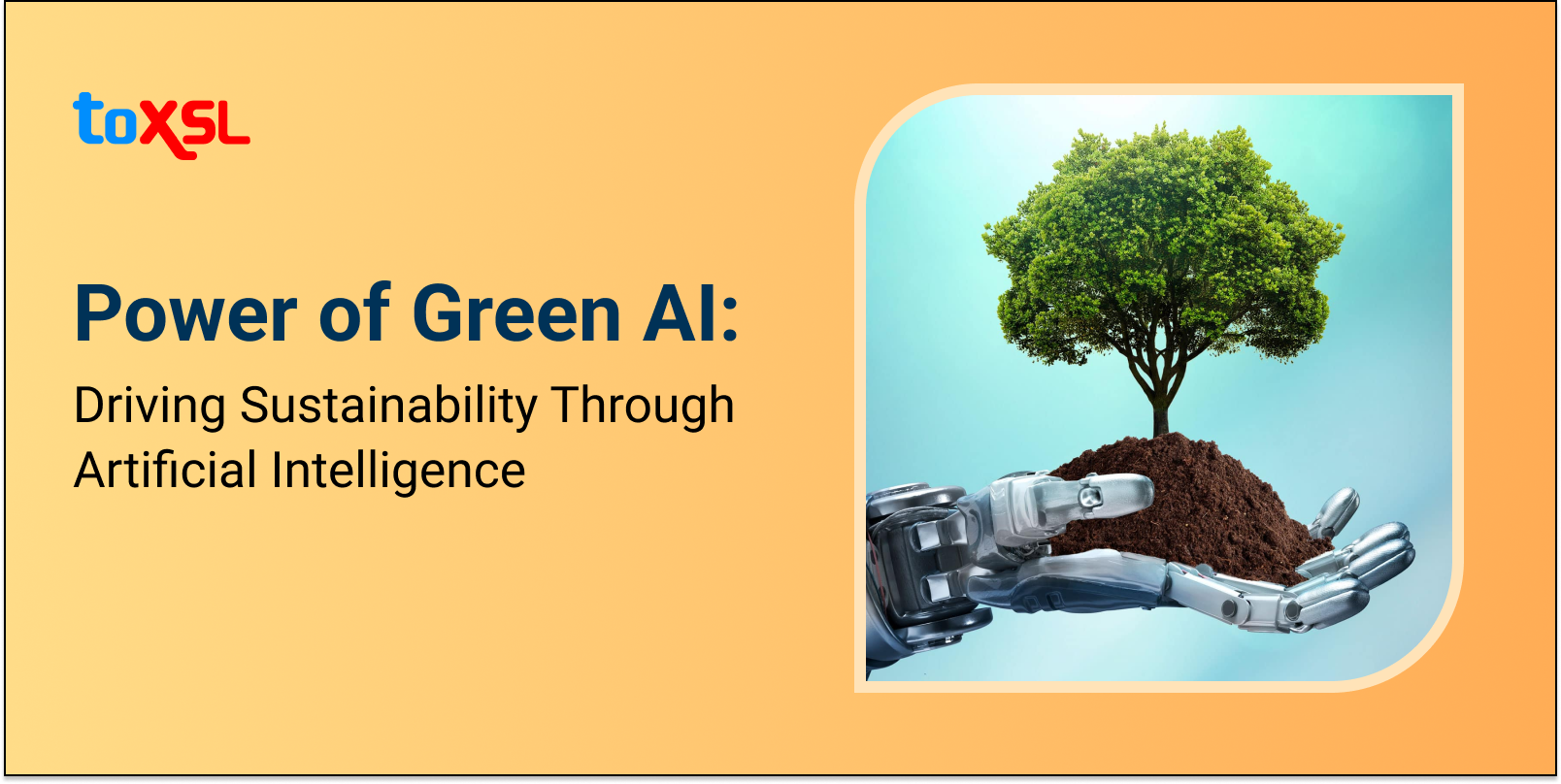
According to Markets and Markets, the global market for Green Technology and Sustainability is projected to reach $28.6 billion in 2024, with an estimated growth of $134.9 billion by 2023, reflecting a remarkable compound annual growth rate (CAGR) of 29.5%.
As environmental concerns grow, companies are seeking innovative solutions to reduce their carbon footprint and operate in a more environmentally friendly manner. One such solution gaining traction is the integration of Green Artificial Intelligence (AI) into business operations. Green Artificial intelligence offers an opportunity to separate industrial growth from environmental harm. It helps leverage computational techniques to decrease the risk of environmental damage.
Green AI is like giving Artificial Intelligence (AI) a green thumb, making sure it helps the planet instead of harming it. It's about using AI in ways that are eco-friendly and help us take better care of the environment. For example, imagine using AI to make buildings more energy-efficient, so they use less electricity and produce fewer greenhouse gases. Or using AI to monitor forests and wildlife, helping us protect them from things like illegal logging or poaching.
Green AI also means being careful about where we get the data for AI and making sure it's collected in a way that doesn't harm people or the environment. And it's about being transparent and accountable in how we use AI, so we can trust that it's helping, not hurting our planet.
In essence, Green AI is about using the power of AI to be good stewards of the Earth, helping us build a more sustainable and eco-friendly future.
Green AI in various Industries: Use Cases
In today's rapidly evolving landscape, the integration of Artificial Intelligence (AI) is not just about innovation; it's about sustainability. Green AI, the marriage of AI and environmental consciousness, is revolutionizing various sectors, driving efficiency, and paving the way for a greener future. Let's delve into real-life examples and use cases of Green AI across different industries: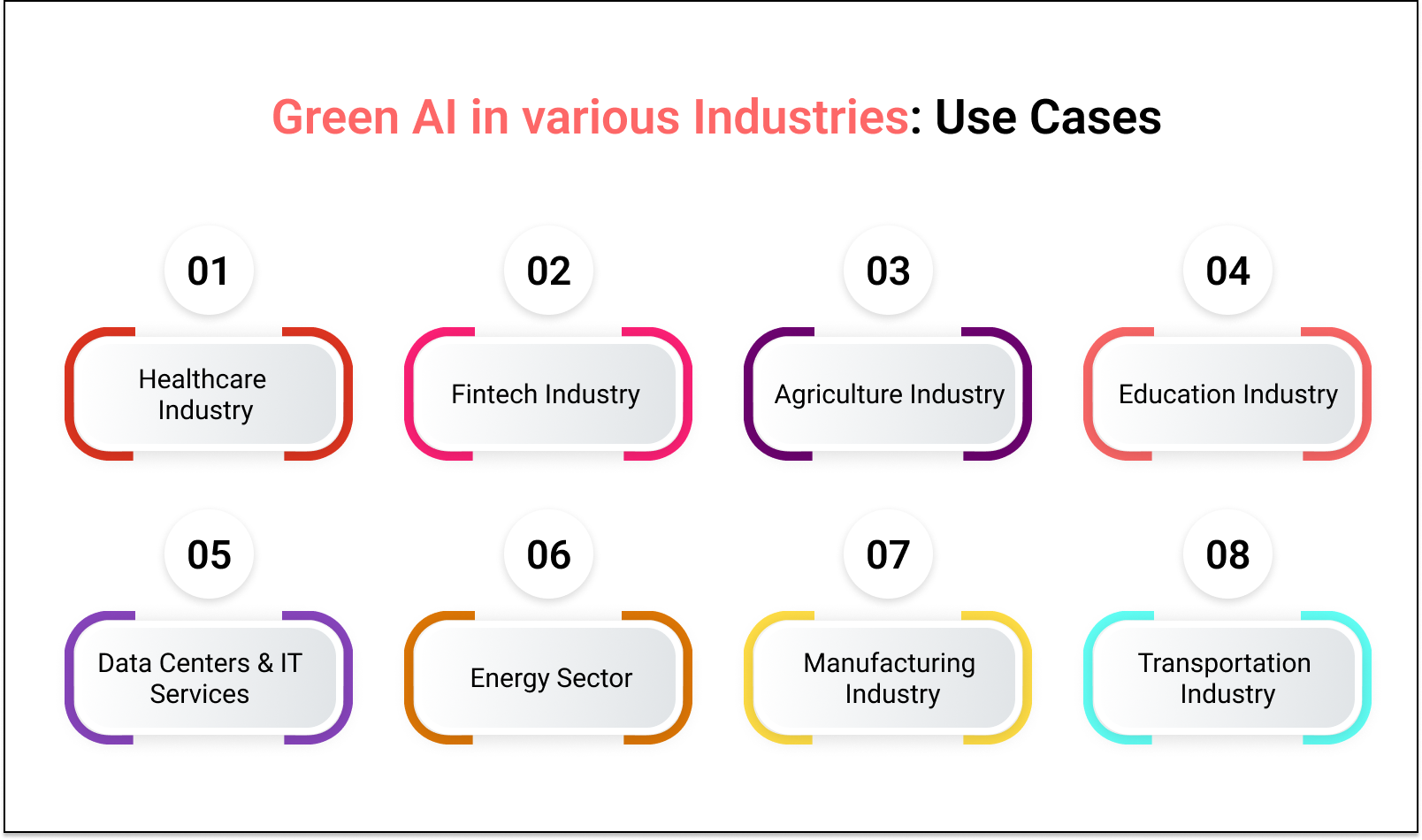
Healthcare Industry:
Medical Imaging Enhancement: AI algorithms analyze medical images to assist healthcare professionals in diagnosing diseases with greater accuracy and efficiency, reducing the need for additional tests and minimizing patient exposure to radiation.
Drug Discovery Acceleration: AI-powered platforms analyze vast datasets to predict molecular interactions, accelerating drug discovery processes and enabling the AI Development of more effective and environmentally friendly medications.
Fintech Industry:
Fraud Detection and Prevention: AI algorithms detect and prevent fraudulent activities in real time, minimizing financial losses and reducing the environmental impact associated with fraudulent transactions.
Risk Management Optimization: AI-driven risk assessment models assist financial institutions in optimizing investment decisions, and promoting sustainable and responsible investment practices.
Agriculture Industry:
Precision Farming Implementation: AI-enabled precision agriculture techniques provide farmers with real-time insights into soil health, crop conditions, and weather patterns, optimizing resource use and promoting sustainable farming practices.
Crop Yield Prediction: AI models analyze agricultural data to predict crop yields accurately, allowing farmers to optimize farming practices and reduce resource waste, contributing to enhanced agricultural sustainability.
Education Industry:
Personalized Learning Platforms: AI-powered educational platforms deliver personalized learning experiences to students, optimizing resource allocation and reducing the environmental impact associated with traditional classroom-based education.
Educational Content Recommendation: AI algorithms recommend relevant educational content to students, promoting efficient learning and reducing paper waste in educational institutions.
Data Centers & IT Services:
Energy-Efficient Data Centers: AI optimizes data center operations by dynamically adjusting cooling systems and workload distribution, reducing energy consumption and carbon emissions associated with data storage and processing.
Green Cloud Computing Solutions: AI-driven workload optimization and resource allocation in cloud computing environments minimize energy waste and promote sustainable IT practices, contributing to reduced environmental impact.
Energy Sector:
Smart Grid Implementation: AI-powered smart grids optimize energy distribution and consumption, reducing waste and promoting the integration of renewable energy sources into the grid, fostering a more sustainable energy ecosystem.
Renewable Energy Optimization: AI algorithms analyze weather patterns and energy consumption data to optimize the deployment of renewable energy sources, maximizing energy output and reducing reliance on fossil fuels.
Manufacturing Industry:
Sustainable Supply Chain Management: AI optimizes supply chain operations by minimizing waste, reducing resource consumption, and promoting ethical sourcing practices, contributing to more sustainable manufacturing processes.
Predictive Maintenance Systems: AI-powered predictive maintenance systems identify equipment failures before they occur, reducing downtime and energy waste in manufacturing facilities, and enhancing operational efficiency and sustainability.
Transportation Industry:
Electric Vehicle Infrastructure Optimization: AI algorithms optimize electric vehicle charging infrastructure, reducing charging costs and promoting the adoption of electric vehicles, contributing to reduced emissions and improved air quality.
Traffic Management Solutions: AI-powered traffic management systems optimize traffic flow and reduce congestion in urban areas, minimizing fuel consumption and emissions associated with transportation, and fostering more sustainable mobility solutions.
Integrating Green AI into Your Business
Integrating Green AI into business operations is a strategic move that can drive sustainability, efficiency, and innovation. Here are the steps to effectively integrate Green AI into your business:
1. Assess Current Practices and Environmental Impact
Begin by assessing your current business practices and environmental impact. Identify areas where AI can be leveraged to improve efficiency and reduce environmental footprint. This could include energy consumption, waste management, supply chain operations, and product lifecycle management.
2. Set Clear Sustainability Goals
Establish clear sustainability goals aligned with your business objectives. Determine key performance indicators (KPIs) to measure progress towards these goals. Whether it's reducing carbon emissions, minimizing waste generation, or optimizing resource use, having specific targets will guide your Green AI integration efforts.
3. Invest in AI Infrastructure and Talent
Invest in AI infrastructure and talent to support your sustainability initiatives. This may involve acquiring AI tools and technologies tailored to your business needs or hiring data scientists and AI specialists with expertise in sustainability and environmental modeling.
4. Implement AI-driven Efficiency Solutions
Identify areas where AI-driven efficiency solutions can drive sustainability gains. This could include optimizing energy usage in manufacturing processes, reducing waste through predictive maintenance systems, or enhancing supply chain transparency using AI-powered analytics.
5. Foster Collaboration and Partnerships
Collaborate with industry partners, research institutions, and AI startups to develop innovative Green AI solutions. Pooling resources and expertise can accelerate progress toward sustainability goals and foster a culture of innovation within your organization.
6. Embrace Ethical and Responsible AI Practices
Ensure that your Green AI initiatives adhere to ethical and responsible AI practices. This includes transparent data collection and usage, minimizing algorithmic bias, and considering the social and environmental implications of AI deployments.
7. Measure and Iterate
Continuously measure the impact of your Green AI initiatives and iterate based on feedback and insights. Monitor KPIs related to sustainability goals and adjust strategies as needed to drive continual improvement and maximize environmental benefits.
Exploring the Benefits of Green AI
Let us explore the advantages of Green AI and how it is revolutionizing industries while driving environmental stewardship.
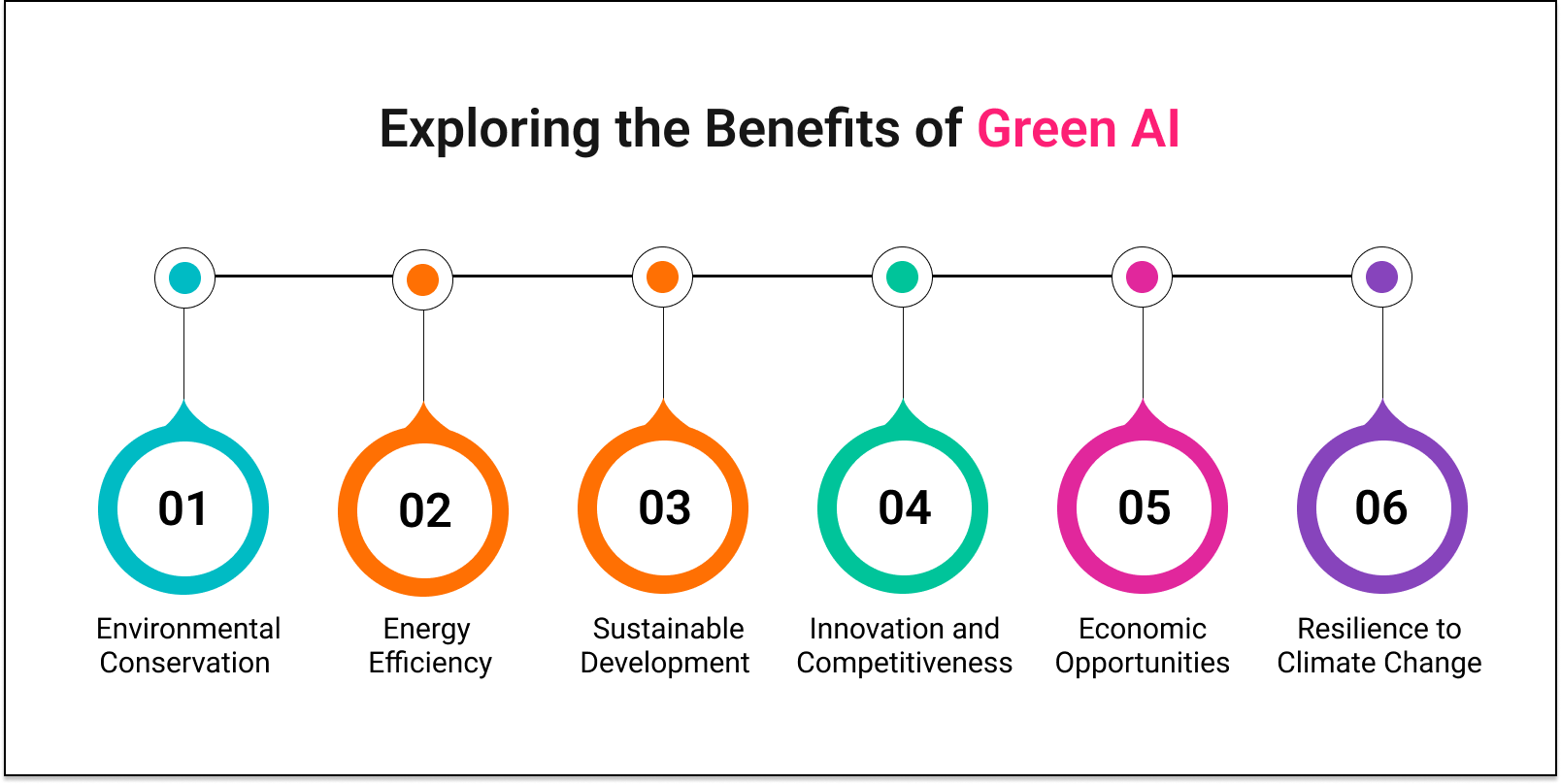
1. Environmental Conservation
At the heart of Green AI lies its ability to optimize resource use and reduce environmental impact. By leveraging advanced algorithms and data analytics, Green AI enables industries to minimize energy consumption, reduce waste generation, and optimize production processes. From smart energy grids to precision farming techniques, Green AI facilitates environmental conservation efforts, preserving natural resources and ecosystems for future generations.
2. Energy Efficiency
One of the most significant benefits of Green AI is its ability to enhance energy efficiency across various sectors. AI-powered systems analyze vast amounts of data to optimize energy consumption, leading to reduced carbon emissions and lower operating costs. Smart buildings, intelligent transportation systems, and energy-efficient manufacturing processes are just a few examples of how Green AI is driving energy efficiency and sustainability.
3. Sustainable Development
Green AI presents a unique opportunity to decouple economic growth from environmental degradation. By promoting sustainable practices and fostering innovation, Green AI enables industries to achieve growth while minimizing their ecological footprint. From sustainable supply chain management to green infrastructure development, Green AI facilitates a transition towards more sustainable and resilient economies.
4. Innovation and Competitiveness
Embracing Green AI fosters a culture of innovation and competitiveness within organizations. By harnessing the power of AI to address environmental challenges, businesses can develop new products, services, and business models that resonate with environmentally conscious consumers. Green AI-driven innovation not only enhances brand reputation but also strengthens market competitiveness in an increasingly sustainability-focused landscape.
5. Economic Opportunities
The adoption of Green AI creates new economic opportunities and drives job growth across various industries. As companies invest in AI-driven sustainability initiatives, demand for skilled professionals in data science, AI development, and environmental management continues to rise. Green AI also stimulates innovation ecosystems, fostering collaboration between academia, industry, and government to address complex environmental challenges.
6. Resilience to Climate Change
In the face of climate change, Green AI plays a crucial role in enhancing resilience and adaptation efforts. AI-driven climate modeling, disaster prediction, and risk assessment enable governments and organizations to anticipate and mitigate the impacts of extreme weather events and environmental disasters. By providing actionable insights, Green AI helps build more resilient communities and infrastructure capable of withstanding future climate challenges.
Conclusion
Integrating Green AI into your business is not just about environmental stewardship; it's also a strategic imperative for long-term success in a rapidly changing world. By aligning sustainability goals with AI-driven innovation, businesses can drive operational efficiencies, reduce environmental impact, and position themselves as leaders in the transition to a more sustainable future. Embrace the power of Green AI and unlock the potential for sustainable growth and innovation in your organization.
Moreover, if you are looking to enhance business with the help of secure Artificial Intelligence services, look no further than ToXSL Technologies. Our AI development services include chatbot development, Natural Language Processing, Generative AI, Responsible AI development, and more. Invest in our services and let us take your business to the next level.





